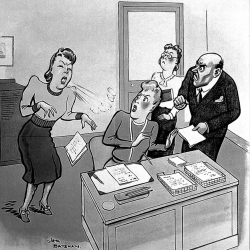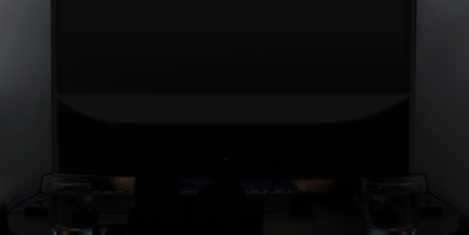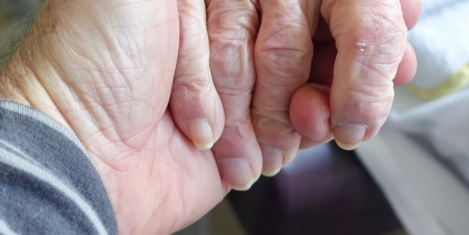To provide the best experiences, we use technologies like cookies to store and/or access device information. Consenting to these technologies will allow us to process data such as browsing behaviour or unique IDs on this site. Not consenting or withdrawing consent, may adversely affect certain features and functions.
The technical storage or access is strictly necessary for the legitimate purpose of enabling the use of a specific service explicitly requested by the subscriber or user, or for the sole purpose of carrying out the transmission of a communication over an electronic communications network.
The technical storage or access is necessary for the legitimate purpose of storing preferences that are not requested by the subscriber or user.
The technical storage or access that is used exclusively for statistical purposes.
The technical storage or access that is used exclusively for anonymous statistical purposes. Without a subpoena, voluntary compliance on the part of your Internet Service Provider, or additional records from a third party, information stored or retrieved for this purpose alone cannot usually be used to identify you.
The technical storage or access is required to create user profiles to send advertising, or to track the user on a website or across several websites for similar marketing purposes.
 Wellbeing advocacy group ukactive has announced a new partnership with HCA Healthcare UK, to undertake a consultation into health and physical activity in the workplace. The partnership brings together the independent research expertise of not-for-profit health body ukactive and the resources of healthcare provider, HCA UK. Anna Davison of ukactive can be heard speaking about workplace wellbeing in the Wellness Maters podcast here. (more…)
Wellbeing advocacy group ukactive has announced a new partnership with HCA Healthcare UK, to undertake a consultation into health and physical activity in the workplace. The partnership brings together the independent research expertise of not-for-profit health body ukactive and the resources of healthcare provider, HCA UK. Anna Davison of ukactive can be heard speaking about workplace wellbeing in the Wellness Maters podcast here. (more…)






 A problem shared may be a problem halved but, according to a new
A problem shared may be a problem halved but, according to a new 


 Today is the first productive day of the year for UK employees, according to new research which claims 38 working days were lost, on average, by each employee last year due to physical and mental health related absence and presenteeism. The study puts the cost to businesses and the economy of these lost days (which in reality are of course spread out across the whole year) at £91.9bn in 2019, an increase of more than £10bn on 2018.
Today is the first productive day of the year for UK employees, according to new research which claims 38 working days were lost, on average, by each employee last year due to physical and mental health related absence and presenteeism. The study puts the cost to businesses and the economy of these lost days (which in reality are of course spread out across the whole year) at £91.9bn in 2019, an increase of more than £10bn on 2018. 
 More than 40 percent of workers have a hidden health issue they’ve never disclosed to their employers, with younger employees the most likely to withhold information from their bosses, according to new research. A survey of 1,000 employees, carried out by healthcare provider
More than 40 percent of workers have a hidden health issue they’ve never disclosed to their employers, with younger employees the most likely to withhold information from their bosses, according to new research. A survey of 1,000 employees, carried out by healthcare provider 
 Over the last 12 months, seven in 10 UK business leaders witnessed presenteeism, where someone come into the office when they are unwell, a survey has claimed. The issue is particularly prevalent at certain times of the year, recruitment firm
Over the last 12 months, seven in 10 UK business leaders witnessed presenteeism, where someone come into the office when they are unwell, a survey has claimed. The issue is particularly prevalent at certain times of the year, recruitment firm 
 GPs issued nearly three-quarters of a million fit notes last year stating that an individual was not fit to work due to a stress-related disorder, new research has claimed. This is a rise of 8 percent compared to 2017/18 (741,210 notes issued, up from 686,670), employment law firm
GPs issued nearly three-quarters of a million fit notes last year stating that an individual was not fit to work due to a stress-related disorder, new research has claimed. This is a rise of 8 percent compared to 2017/18 (741,210 notes issued, up from 686,670), employment law firm 
 Some 47 percent of employees who care for both children and elderly relatives (sandwich carers) are keeping these responsibilities hidden from their employer, a survey from
Some 47 percent of employees who care for both children and elderly relatives (sandwich carers) are keeping these responsibilities hidden from their employer, a survey from 
 Three-quarters of UK employees who have experienced a mental health condition believe stigma around the issue has reduced over the past year but the vast majority would still not discuss their condition with their line managers, according to new research. Aviva’s “Health of the Workplace” report, released for Time to Talk Day, suggests that just 9 percent of employees who have had a mental health condition sought help from their line manager, 12 percent would discuss their condition with a work colleague and only 4 percent would talk to HR.
Three-quarters of UK employees who have experienced a mental health condition believe stigma around the issue has reduced over the past year but the vast majority would still not discuss their condition with their line managers, according to new research. Aviva’s “Health of the Workplace” report, released for Time to Talk Day, suggests that just 9 percent of employees who have had a mental health condition sought help from their line manager, 12 percent would discuss their condition with a work colleague and only 4 percent would talk to HR. 












February 27, 2020
The integration of people, place and policy will define the new workplace era
by Frances Gain • Comment, Wellbeing, Workplace design